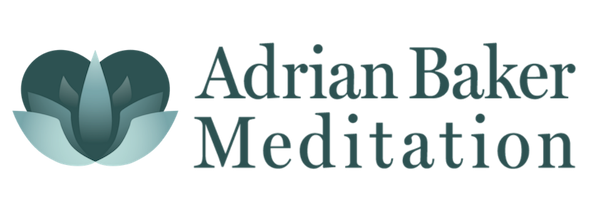Two Modes: Being vs. Doing - Part 2
In the last post I mentioned the problems with constantly being locked into a mode of Doing. It’s also worthwhile to underscore that life is all about balance and there is a shadow side of Being: apathy. This is when we’re not honoring our need to create and connect because we’re caught up in some form of spiritual bypassing, maybe invoking some spiritual teaching we’ve heard elsewhere as a way to justify behavior that we know is not in the best interests of others or ourselves. Maybe you’ve latched onto some non-dual teaching like “It’s all one anyway, so there’s nothing to do.”
Though this is a serious pitfall on spiritual paths, for most people in modern society this isn’t a good reason not to begin a meditation practice, or to set aside time for quiet activities. Instead, I’ve heard people articulate the opposite kind of bypassing: “meditation will make me lose my edge.” This might sound silly to many people, but this is where the logic of modernity leads when taken to its extreme:
people are afraid to pause, relax, and enjoy life because they think they don’t have the time.
The best reply to this sort of thinking would be to set aside any sort of intellectual argument and refer to the accounts of people who are approaching the end of their life. Very few people say this wish they would have worked more or accomplished more. Instead, people talk about the importance of setting aside time for the relationships that they valued, travel, or learning to pause and enjoy life.
But the cultural conditioning of modernity has people all across the globe so wound up and consumed with consuming and producing that they have forgotten how to simply pause, take and appreciate the joy that comes from feeling the warmth of the sun on one’s own skin.
I would argue that a meaningful and happy and creative life is one that thrives on balance. Contemplation, Being, is what the skillset that so many of us are missing to bring our lives back into balance.
Through my experience coaching clients in mindfulness meditation, it’s clear that the most challenging problem for most people these days is being still. When people are given the leisure time so many of them crave, the truth is that most of them don’t know what to do with themselves. They don’t know how to be present with unpleasant emotions like sadness, and they don’t know how to be with more neutral ones like boredom.
The next time you feel bored, recognize it as boredom then pause and ask yourself “What is boredom?” You don’t need to answer it with a thought, but try to feel into it, see if you can notice where the boredom is located in your body. Be still and watch the boredom: observe if it lasts (spoiler alert: it never does, but until you see this for yourself, you’ll be pushed and pulled around by emotions, even dull ones like boredom).
Many people would actually prefer to actively do things that they find unpleasant rather than simply be still in a quiet, comfortable setting.
Learning to rest in Being mode is important for a number of reasons, just a few of which are:
Physically, physiologically, and psychologically--your body needs rest. It needs to settle. This is very important for your physical and mental health, and without your health, you won’t be able to do any of those things that you love to do.
Your mental well being will improve substantially when you learn to cultivate positive emotions like contentment, gratitude, joy, kindness, compassion, as well as a balanced state of mind often referred to in Buddhism as “equanimity”
When you learn to rest in Being Mode, you will actually operate with more efficiency, clarity, and wisdom when you are actively Doing things.
Being provides necessary space of mind to clarify and reflect on which priorities are most important to you, to create the space to bring your life into balance
Some cultures are orientated more towards Doing and some cultures more geared towards Being. Of course, this is a binary way of viewing the world, and reality is always much more nuanced and operates along a spectrum. However, as a pedagogical lens this approach can be helpful, if you hold onto it lightly.
It’s helpful to first recognize the impact of culture, and of the environment, on your life. Particularly in this modern era, life moves at a frenetic pace in many cultures. If you live within a country, or within a large urban area, that’s highly inclined towards a faster pace of life, it’s worth pausing to reflect in what ways your life might be out of balance, might be too heavily tilted towards Doing and never Being.
A few questions to contemplate might be:
What parts of my daily schedule are orientated towards Being?
When I don’t have anything structured or urgent to do, how do I spend my time?
Do I have routines that allocate time to enjoy silence, alone, without technology or any other distractions?



